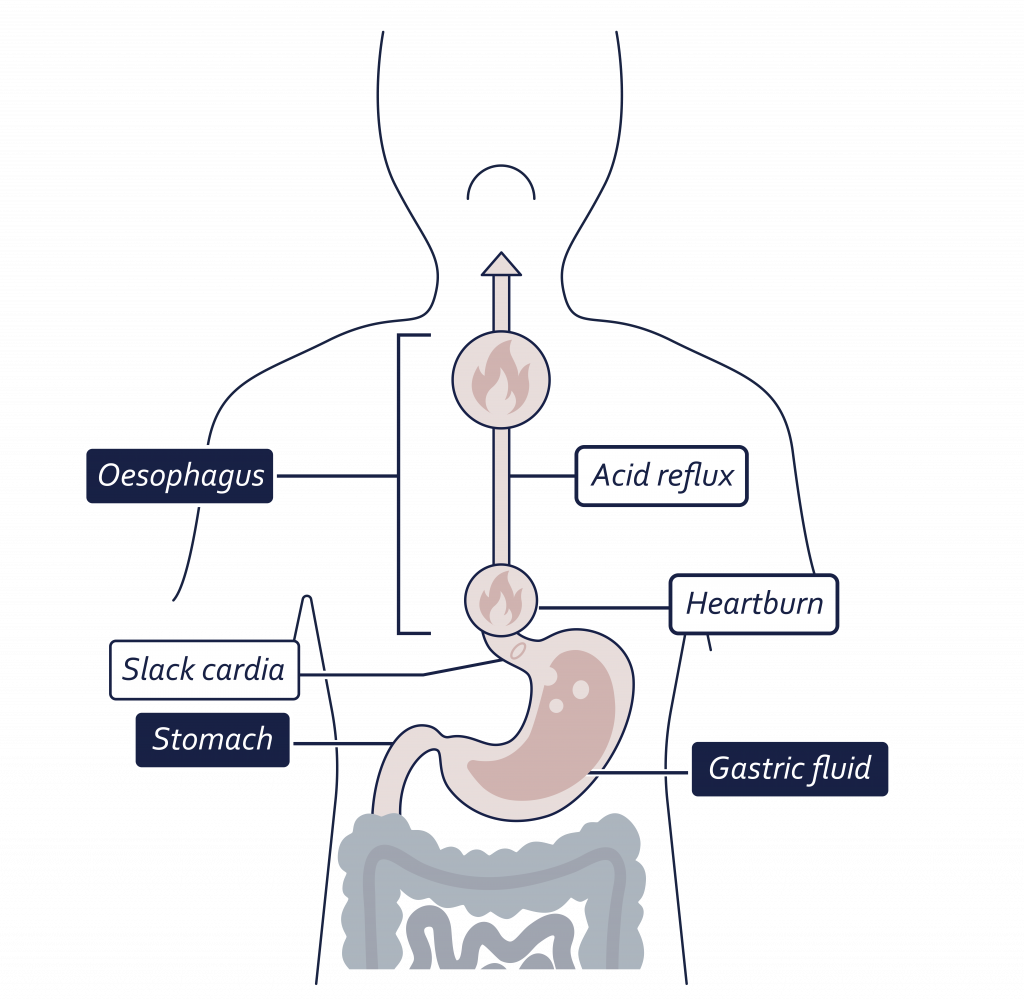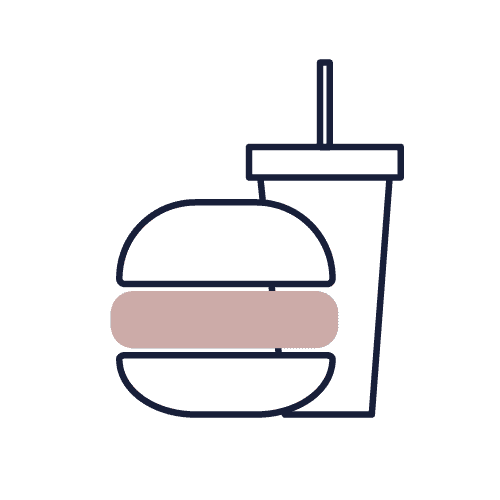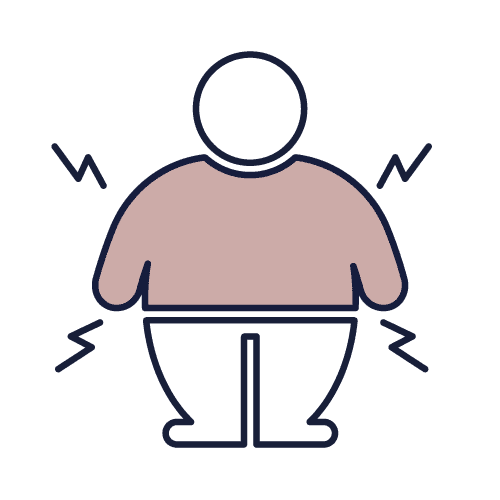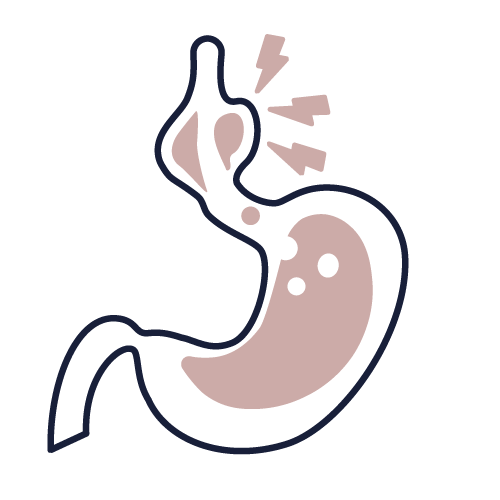Gastroesophageal reflux disease
(GERD)
Gastroesophageal reflux disease (GERD) is a functional disorder causing stomach contents to flow back into the oesophagus. Related to dysfunction of the cardia (the muscle at the junction of the oesophagus and stomach), GERD is a common condition in adults.



Gastroesophageal reflux disease (GERD), a common digestive disorder
In gastroesophageal reflux disease (GERD), stomach contents, including acid and bile, flow back up from the stomach into the oesophagus, causing inflammation of the oesophagus and pain in the lower chest.
Gastroesophageal reflux disease is a common condition. It occurs in 10 to 40%(3) of adults and is also common in infants. GERD has a significant impact on patient quality of life: 60% of patients find it uncomfortable, and 34% find it very uncomfortable or disabling(3).

Gastroesophageal reflux disease (GERD): what are its symptoms(4) ?
The two main symptoms of GERD are:
- epigastric burning (pyrosis) usually occurring after meals or in certain positions such as leaning forward or lying down
- acid regurgitation, occurring without nausea or vomiting effort
Digestive signs such as hiccups or symptoms of dyspepsia can be associated.
Gastroesophageal reflux disease can also lead to:
- ENT manifestations like laryngitis, pharyngitis, hoarseness and difficulty swallowing
- pulmonary manifestations such as cough or asthma
- chest pain that may mimic angina pectoris
GERD is a chronic condition. Symptoms can be daily or intermittent depending on diet and activities.
Factors that cause gastroesophageal reflux disease (GERD)(4)
Gastroesophageal reflux disease (GERD) is caused by dysfunction of the lower oesophageal sphincter. It is particularly favoured by:

Weight gain

Abdominal obesity

The presence of a hiatal hernia

Pregnancy

Certain drugs that affect the function of the lower oesophageal sphincter

Smoking, alcohol, caffeine, soft drinks, spices, high-fat foods…
1https://www.snfge.org/content/reflux-gastro-oesophagien-rgo (consulté le 30/05/2022)
2Bruley des Varannes S, Errieau G, Tessier C.(two third of patients with gastroeosophageal reflux have nocturne symptoms : Survey by 562 general practitioners of 36 663 patients LA PRESSE MEDICALE, Vol 36, N° 4, N° CAH1, 2007, pages 591-597, 22 réf.
3Epidémiologie du reflux gastro-oesophagien en médecine générale. Facteurs prédictifs de la consommation de soins sur un an – Vallot T, Bruley Des Varannes
4https://www.ameli.fr/assure/sante/themes/rgo-adulte/definition-symptomes-causes (consulté le 30/05/2022)

